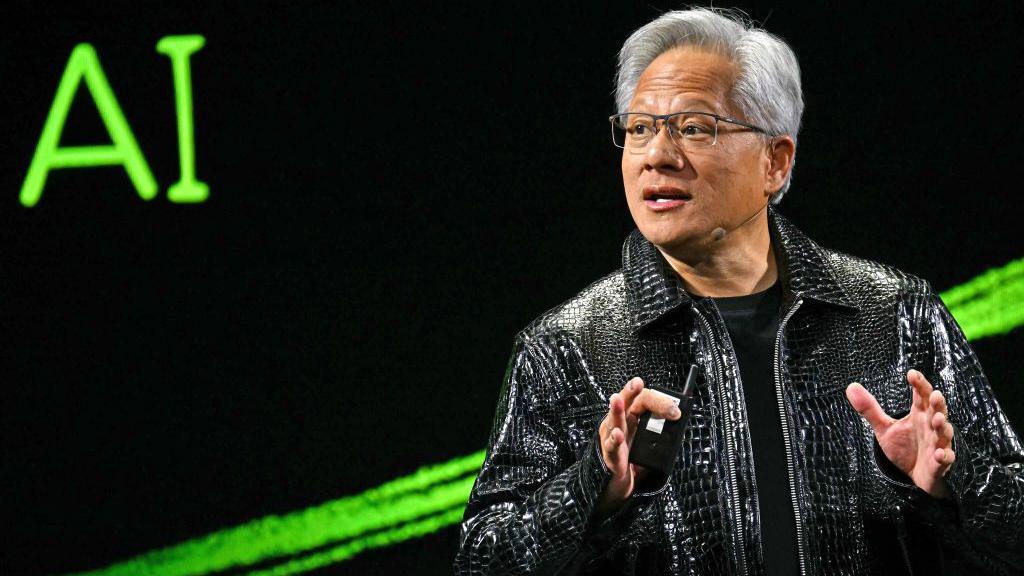Nvidia, the computer-chip designer, has seen significant growth driven by major tech firms eager to expand their artificial intelligence capabilities, despite navigating ongoing tensions between the U.S. and China.
The company reported $46.7 billion in revenue for the second quarter, a 56% increase compared to the same period in 2024, underscoring strong demand for its products.
However, Nvidia acknowledged it “continued to work through geopolitical issues” amid the trade dynamics between the U.S. and China, leading to a slight dip in its shares during after-hours trading.
The company has had to carefully manage policies from the previous U.S. administration aimed at maintaining U.S. leadership in AI development.
Nvidia’s advanced chips have played a crucial role in the current AI boom.
The company emphasized that demand remains robust, particularly from tech giants like Meta (owner of Instagram) and OpenAI (creator of ChatGPT), as they invest heavily in AI infrastructure.
“The AI race is now on,” stated Nvidia CEO Jensen Huang in a call with analysts following the report’s release, noting that spending from four major tech firms had doubled to $600 billion annually.
“Over time, you would think that artificial intelligence would… accelerate GDP growth,” Huang added. “Our contribution to that is a large part of the AI infrastructure.”
Nvidia’s data center revenue surged by 56% to $41.1 billion, although it slightly missed analysts’ expectations.
In July, Nvidia achieved a milestone, becoming the world’s first $4 trillion company.
The Santa Clara, California-based company, specializing in AI chips, forecasts revenue in the current quarter to reach approximately $54 billion, exceeding Wall Street analysts’ projections.
Despite its financial success, Nvidia remains susceptible to geopolitical tensions between the U.S. and China.
In July, Nvidia announced plans to resume sales of its high-end AI chips to China.
This decision followed after Huang’s successful lobbying efforts to persuade the previous U.S. administration to lift its ban on the sale of Nvidia’s H20 chips, specifically designed for the Chinese market.
The ban had been implemented due to concerns that the chips could potentially benefit the Chinese military, in addition to AI developers within the country.
On Wednesday, company executives disclosed that the U.S. government initiated a review of licenses for sales of H20 chips tailored for Chinese customers in late July.
The company clarified that it has not yet shipped any H20 chips, even though some China-based customers have received the necessary licenses in recent weeks.
The U.S. government anticipates receiving 15% of the revenue generated from licensed H20 sales.
Nvidia’s outlook for the current quarter did not include H20 sales, and the company is actively lobbying the U.S. government to approve the sale of its Blackwell chips to China, a significant market for chip sales.
In the meantime, analysts suggest that China is fostering competition in the chip sector, which Nvidia currently dominates.
“US export restrictions are fuelling domestic chipmaking in China,” stated Emarketer analyst Jacob Bourne following the report’s release.
He added that the key question now is whether Nvidia’s “dive into robotics” will enable it to maintain its position as “the bellwether of the AI economy.”
Sign up for our Tech Decoded newsletter to follow the world’s top tech stories and trends. Outside the UK? Sign up here.

